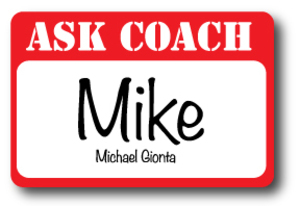Every day we wake up with a hefty to do list—countless meetings, work projects and tasks that need to be completed, activities and events to attend after work, and even dinner is on the to do list because we all have to eat dinner! When you put your daily tasks and to do list items together, it’s a lot to accomplish each day. How do you manage it all?
We all have those days where we feel like we didn’t accomplish anything on our to do list, yet we were working all day. How can that be? You can easily get into an endless cycle of this.
At the Staffing World keynote presentation this year, attendees had the opportunity to hear from U.S. Olympic Swimmer, Katie Ledecky. Katie Ledecky is the most decorated U.S. Female Olympic athlete in history. During her keynote she shared the importance of goal setting and writing down your goals. She also shared how she wrote down numbers on water toys that represented her goals and every day at practice she would see those numbers and be reminded about the goals she wanted to accomplish at the next Olympics.
Ledecky’s keynote speech got me thinking of our everyday to do lists and goals. The simple task of writing down your daily to do list can help you stay productive and accomplish your daily goals. So, how can we be the most productive each day and accomplish all of our goals? Let’s explore a few tips and tricks to get the most out of each day!
Make Your To Do List at the End of the Day
Before leaving the office or signing out of work remotely, make your to do list for the next day. This will set you up for success the next morning. If you don’t go into work with a plan, then you will waste precious morning time figuring out what you have to get done. Set your to do list the night before so you can hit the ground running the next day!
Writing down your to do list will also help you remember everything you need to get done. It’s easy to say “I have a mental note”, but with everything going on and popping up in a day, it can easily be forgotten.
Star Off MUST COMPLETE Items on Your To Do List
You probably have a long or on going to do list. Usually at the end of the week, I will create a to do list for the next week that is typically on going for that week. Each day it is important to have a to do list, but also to “star off” the must complete items. By prioritizing items each day that must get done, you can help ensure the most critical and time sensitive tasks are being completed.
Finish One Task at a Time
While typically it’s a positive trait to be able to multi-task, try finishing one task before going onto the next. Of course, that is much easier said than done with emails coming through that need to be responded to, interruptions at work, and so forth. Unless it is an emergency or something that needs an immediate response, hold off on answering emails until you complete the task at hand. If it is a project that is going to take a long period of time, take breaks throughout to check emails and to get back to people.
By prioritizing one task at a time, it can also help you eliminate stress. Trying to juggle multiple tasks at once can easily get overwhelming.
Time Block
In an ideal world, we would have all of the time in a day to conquer our to do list. In reality though, we have meetings and appointments that take us away from our daily to do list. In between your scheduled meetings and appointments, set aside dedicated time to accomplish each task on your to do list. Scheduling this dedicated time will help you stay on top of your daily goals.
Identify Distractions During the Day
Even if we are the best and most organized planner in the world, we still can’t avoid unexpected disruptions throughout the day. Emergencies can arise, unexpected meetings pop up, disruptions from co-workers can happen, notifications pop up on your phone, and more. It’s important to take some time to identify distractions you have throughout the day and how you can avoid distractions.
Today we get a ton of notifications on our phones, much of the time it’s something we aren’t even that interested in, yet it is a distraction. If you don’t need your cell phone for work, put it on do not disturb or put it away from your workspace. Every time a notification comes through, and you look at your phone, it counts as a distraction. It can also lead to a rippling effect—one notification comes in and next thing you know you are scrolling on your phone.
Interruptions from co-workers and unexpected meetings also pop up. If you are in the middle of finishing a task and a co-worker needs assistance with something that’s not an emergency, you can say you will help them as soon as you are finished. If an unexpected meeting pops up, it’s probably important for you to be there. If the meeting though is something you can’t contribute much to and you are in the middle of a critical task, let the meeting attendees know you won’t be able to make it, but can assist with anything that comes up from the meeting afterwards.
There can be a lot of distractions working at home as well, especially if other people are home. This is where your workspace can become important. If you have a lot of distractions at home, work in a space that is away from the noise and activity to minimize interruptions.
Why is it important to eliminate distractions? Besides the obvious reason of getting distracted, studies have shown that it could take up to 23 minutes to regain focus on what you were previously working on after a distraction. The more you can limit yourself to distractions, the more you can stay focused and finish the items on your to do list.
Take Breaks
Studies show the advantages of taking breaks throughout the day. A Slack survey found that people who take breaks throughout the day are 13% more productive. This could include a simple break to get a snack or get a drink, a walk around the office to stretch legs, or even a chat with a co-worker. Another study from the University of Sydney showed that a 5 minute break can boost performance by 40%.
When you get stuck on something, or are feeling a bit overwhelmed, or perhaps you feel like you just need a break, take a break! Even a short 5-minute break can help you recharge and refocus on the task at hand. It might even inspire you with new ideas.
Work in a Space that Inspires You
The space in which you work can also have an impact on your productivity. If you work remotely some or all of the days, think about the environment where you work at home. Does it inspire you? For example, working in a space with no windows is very different than working in a space with windows. Do you dread going to your workspace in the morning? Perhaps that could be a sign to switch it up. Even switching up your location every once in awhile can help boost productivity—instead of working in the office, maybe work in the kitchen, or out on your patio on a nice day. A change of scenery can help keep work fresh and re-energize you to make the day most productive.
To Do List = Conquered
Now you are equipped with a tool kit of tips and tricks to help you maximize productivity and conquer your daily to do list. Whether these are new ideas or perhaps a refresher of what you try to do, hope it helps you accomplish your goals each day, so you never again have to say, “I feel like I didn’t accomplish anything today!”





